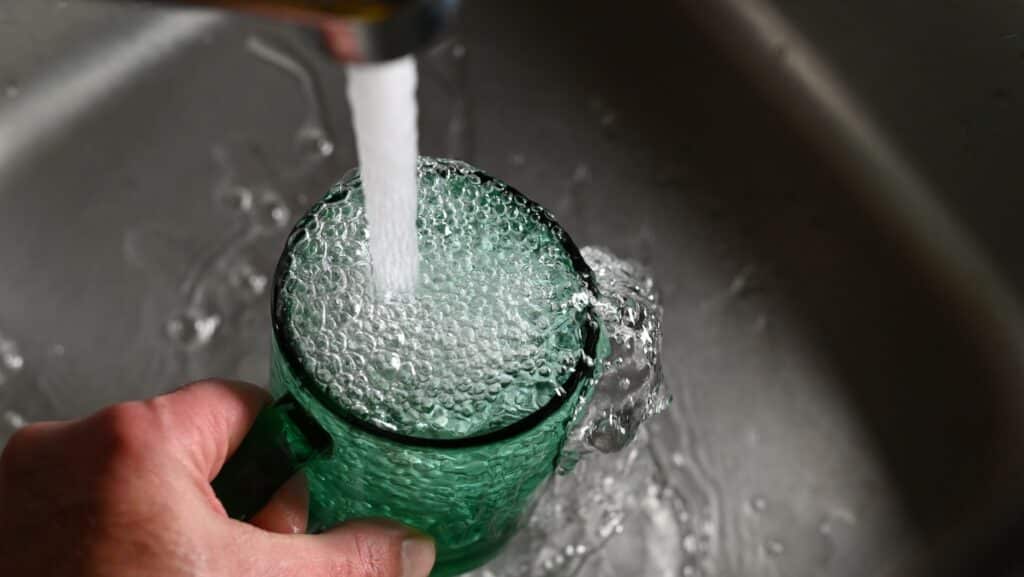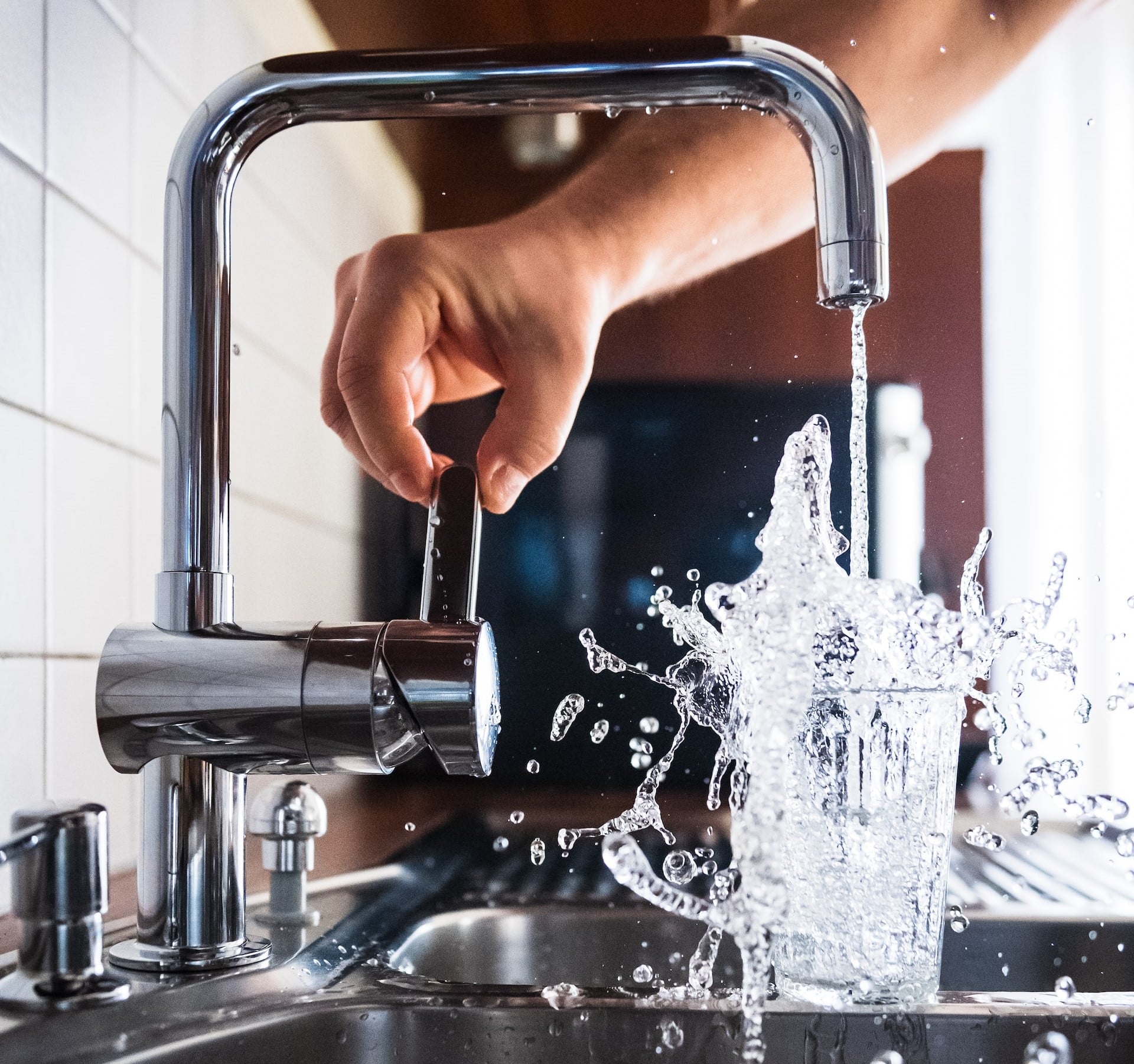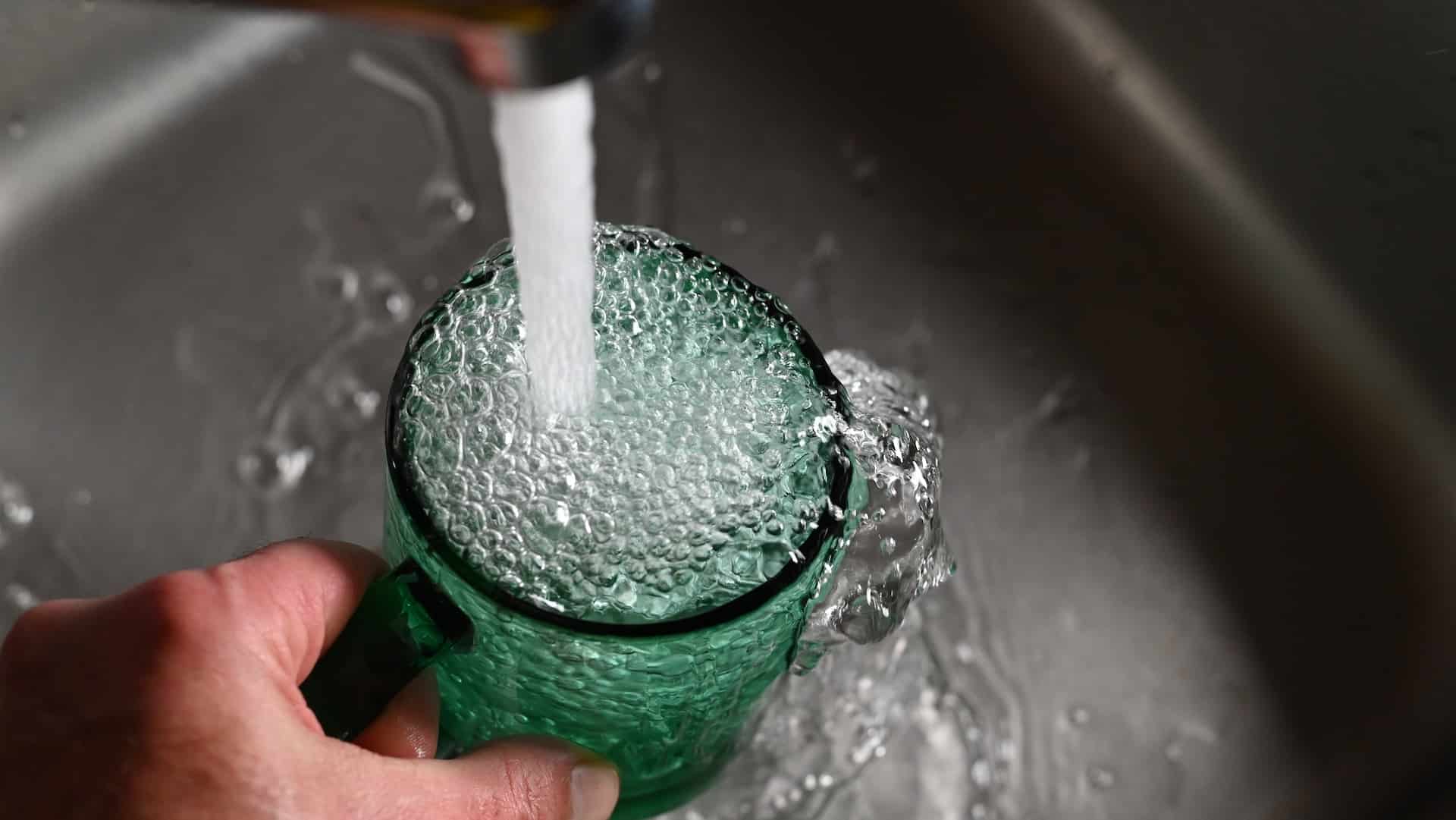Cloudy Tap Water? Common Causes & How to Fix Them

Staring at a glass of foggy water straight from your tap can be a bit disconcerting, can't it? We've all been there, and it's easy to jump to the worst-case scenarios. But before you panic, let us put your mind at ease. In the vast majority of cases, cloudy tap water in the UK isn't a health hazard - it's perfectly safe to knock back.
Our aim with this handy guide is to clear the air (or should we say, water?) on why your tap water might be looking a bit murky and how to tackle it. So take a deep breath, and let's dive into the nitty-gritty of cloudy tap water and its remedies!
Aeration: The Most Common Cause of Cloudy Tap Water
Cloudy tap water is most commonly caused by the presence of tiny air bubbles, which can give the water a greyish or white appearance. This phenomenon is generally harmless and the cloudiness typically dissipates within a minute when the water is left to stand in a glass. This can often be attributed to changes in water pressure or aeration in your supply network and you should see the water clear within a minute or so.
Other Causes of Cloudy Water
If the water doesn't begin to clear over the course of a minute, there may be other causes behind the murky water you're seeing. These might include:
- High mineral content (Hard Water): Areas with hard water have high concentrations of minerals like calcium and magnesium. These minerals can make the water appear cloudy. The solution is to install a water softener or descaler in your home.
- Pipe corrosion: Old, corroded pipes can cause rust to enter your water supply, giving it a cloudy appearance. If this is the case, you may need to replace your home's plumbing. Learn more about pipe corrosion here.
- Water heater issues: If you only notice cloudy water when using hot water, the issue might be with your water heater. Sediment can build up in the tank over time and get stirred up when the hot water is used. Flushing your water heater can resolve this issue.
- Water works: If your local water supply is undergoing maintenance or repairs, it could stir up sediment and cause your water to become cloudy. This should resolve itself once the work is completed - though you can contact your council if you are concerned that it's affecting your water supply.
- Contaminants: Although rare, contaminants such as bacteria, algae, viruses, fungi, minerals, and man-made pollutants can cloud water. If you suspect this, it is best to get your water tested and then treated accordingly.
There are some simple steps you can take to investigate the cause of your cloudy water, if you suspect it's caused by something other than harmless air bubbles. Let's get into it...
Identifying the Cause
Identifying the cause of cloudy tap water can be as simple as making a few careful observations and conducting some easy home-based tests. Here are some tips to help you pinpoint the issue:
- Observe the speed of clearing: If the cloudiness clears from the bottom upwards within a few minutes, it's most likely due to tiny air bubbles. The cloudiness often disappears quickly when the water is left standing in a clear glass.
- Hot or cold?: If the cloudiness only appears in hot water, the issue could be your water heater. If it appears in both hot and cold water, pipe corrosion or high mineral content could be the culprits.
- Check for discolouration: If your water is a reddish-brown or yellow colour, this could indicate rust, suggesting that your pipes might be corroded.
- Does it smell?: Water contaminated with bacteria or algae often has a noticeable smell. If your tap water smells unpleasant, it's best to get it tested.
- Taste the water: Though it's not the most delightful method, tasting the water can also give you some clues. If it has a metallic taste, it could be due to high iron content or rust in your water.
Remember, if you're ever unsure about the safety of your water, it's best to seek professional advice You can contact your local water supplier for further assistance or arrange for a water quality test from a plumber.
What's Involved in a Water Quality Test?
A water quality test conducted by a professional plumber or your local water supplier involves a comprehensive analysis of your tap water. The professional takes a water sample from various points within your home, like the kitchen tap, bathroom tap, and even straight from your water meter. This sample is then sent to a certified laboratory for examination.
The lab analyses the water sample for a variety of criteria, including pH level, hardness, and the presence of bacteria, algae, and other contaminants. You then receive a detailed report outlining any issues detected during the test. Depending on your results, the plumber or water supplier will recommend the best course of action to rectify any issues and ensure you have clean, safe tap water.
Is Tap Water Safe to Drink?
Yes, British tap water is overwhelmingly safe to drink. The DWI (Drinking Water Inspectorate) monitors tap water and regulates suppliers to ensure that it meets the highest quality standards. You can read more about the DWI’s role in keeping drinking water safe here.
Why Would You Filter Tap Water?
Though tap water is safe to drink, many people prefer the taste of filtered water. Installing a tap water filter at home can help reduce unpleasant tastes, smells, and chlorine in your water supply - plus it's a more cost-effective and eco-friendly option than buying bottled water.
Filters also offer extra protection against potential contaminants that may slip through the DWI’s rigorous standards. While these levels are safe for consumption, some people prefer to err on the side of caution and use a filter for their tap water. Read more about ways to filter tap water here, including through the use of a 4-in-1 kitchen tap.
To Conclude...
While cloudiness in your tap water might initially raise concerns, it's important to remember that it is typically harmless and often attributed to air bubbles or changes in water pressure. However, if the cloudiness persists, it could indicate issues such as high mineral content, pipe corrosion, water heater sediment, local water works, or, although rare, contaminants.
Rest assured, UK tap water is heavily regulated and safe to drink, with water filters offering additional peace of mind for those who prefer an extra layer of protection.


